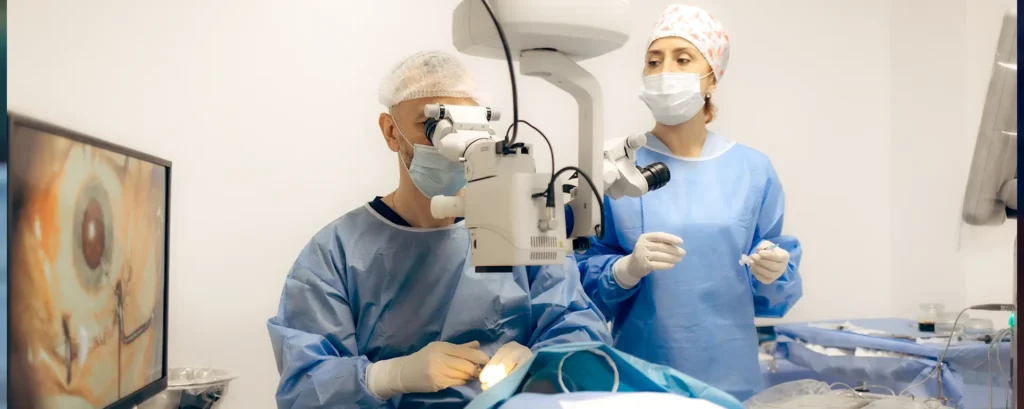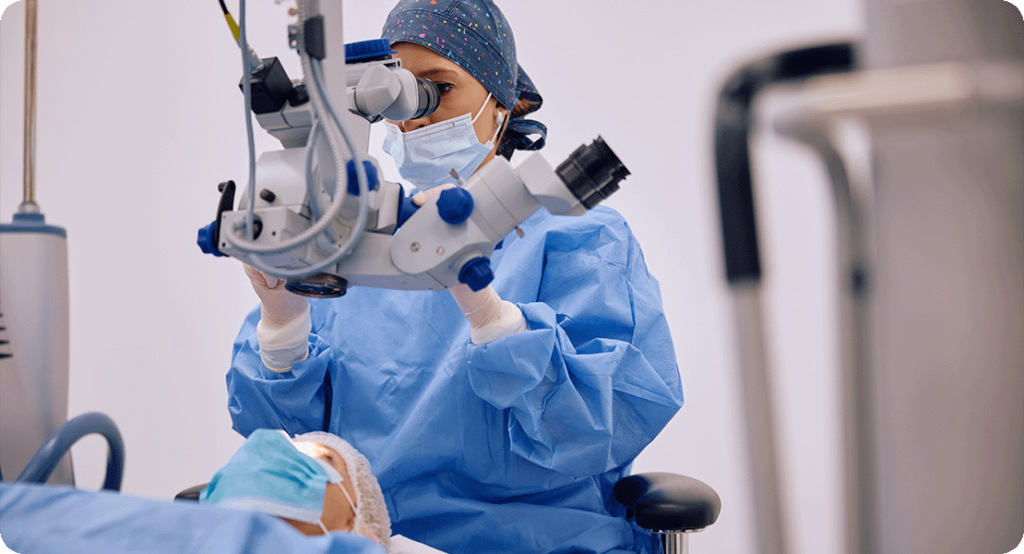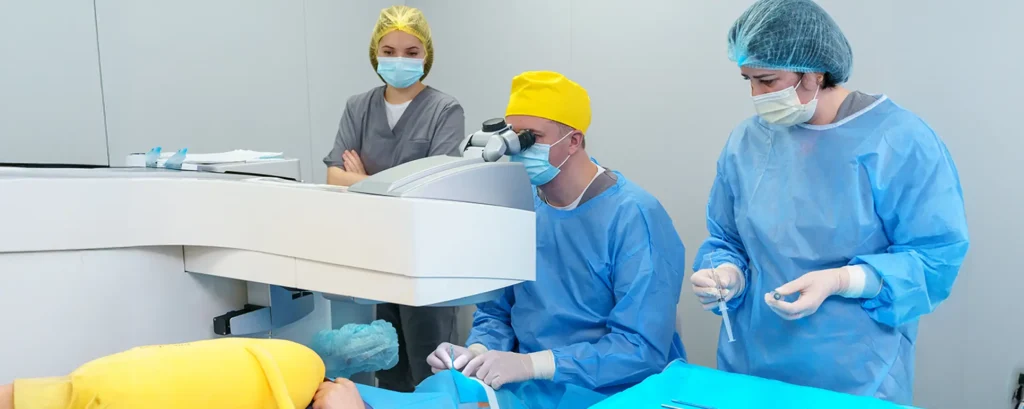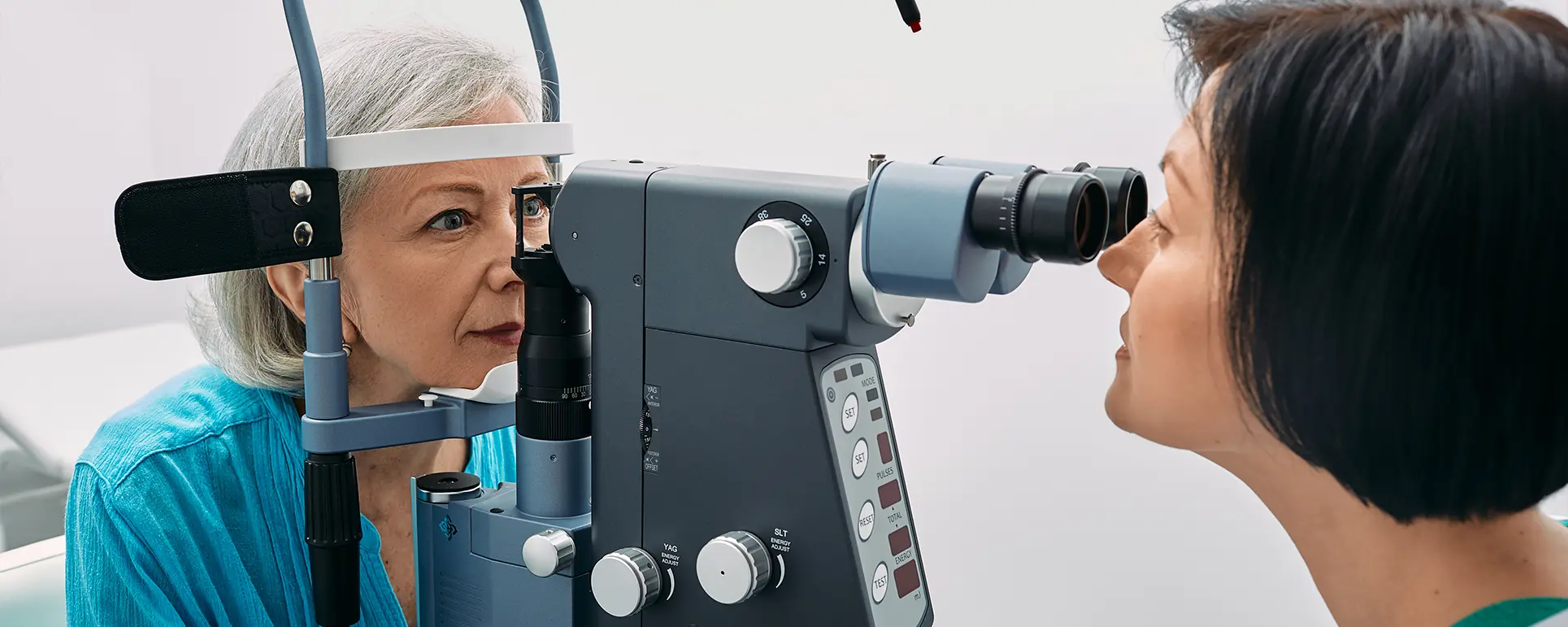If you have both cataracts and optic neuropathy, you may be wondering what kind of vision improvement you can realistically expect after surgery. Cataract surgery is one of the most effective procedures in modern medicine, but when there is pre-existing damage to the optic nerve, the results can be more complex. In this guide, we’ll explore exactly what happens when these two eye conditions overlap, how your surgeon will evaluate your optic nerve before recommending surgery, and how expectations are set so that you get the clearest possible picture of your likely outcome.
Understanding Optic Neuropathy and Its Impact on Vision
Optic neuropathy refers to damage to the optic nerve, the cable that transmits visual signals from your eye to your brain. This damage can result from various causes, including glaucoma, inflammation (optic neuritis), poor blood flow (ischaemic optic neuropathy), trauma, or compression by a tumour. Once the optic nerve is damaged, the visual information it can transmit becomes permanently reduced.
With cataracts, the problem lies within the lens of the eye, which becomes cloudy over time. In theory, removing the cataract restores a clear pathway for light to enter the eye. However, if the optic nerve cannot fully process that light, the improvement in vision will be limited. This is why optic neuropathy can blunt the visual gains from cataract surgery, even if the operation itself is technically perfect.
It’s also worth noting that optic nerve damage can affect different aspects of vision — not just sharpness (visual acuity), but also contrast sensitivity, colour perception, and peripheral vision. This means that while you might notice some improvement in clarity after surgery, other visual deficits may remain unchanged.
Why Cataract Surgery Is Still Considered in Optic Neuropathy Patients
Even when the optic nerve is damaged, cataract surgery can still be beneficial in many cases. For some people, clearing the lens allows them to make the most of the optic nerve function they have left. This can lead to better day-to-day functioning, easier reading, improved mobility, and better performance in low-light conditions.
In some patients, cataracts worsen the visual impairment caused by optic neuropathy to the point where everyday activities become very difficult. Removing the cataract can help reduce glare, improve contrast, and restore a level of clarity that makes a meaningful difference in quality of life.
Your surgeon’s role here is not to promise miracles but to look carefully at the optic nerve’s condition and explain how much improvement is possible — and whether that improvement justifies surgery for you.
How Surgeons Assess the Optic Nerve Before Cataract Surgery

Before recommending cataract surgery in a patient with optic neuropathy, your surgeon will carry out a detailed eye examination. This usually includes:
- Ophthalmoscopy – looking directly at the optic nerve head through the pupil to assess its colour, contour, and any signs of swelling or cupping.
- Optical Coherence Tomography (OCT) – scanning the nerve fibre layer for thinning, which can indicate the extent of damage.
- Visual Field Testing – mapping out any areas of vision loss, especially in the periphery.
- Contrast Sensitivity and Colour Vision Tests – measuring subtle visual functions that can be affected by optic nerve damage.
These tests help to create a more accurate prediction of what your vision could be like after cataract removal. In some cases, the cataract may be so dense that detailed optic nerve assessment is difficult. In these situations, your surgeon may recommend surgery partly to see whether vision improves enough to make further testing possible.
Setting Realistic Expectations — The Honest Conversation
One of the most important parts of cataract surgery in optic neuropathy patients is the pre-surgery conversation. Your surgeon should give you a realistic forecast of what to expect, based on your optic nerve’s current condition and your specific lifestyle needs.
If your optic nerve damage is mild, you might regain vision close to normal levels for your age. If it’s moderate, you might notice a clear improvement, but not to the point of perfect clarity. If it’s severe, the improvement may be limited to better light perception and some reduction in glare — which can still be worthwhile in daily life.
This conversation is about avoiding false hope while still focusing on the positive changes surgery can bring. It also ensures you go into the procedure prepared for the possibility that glasses or magnifying aids may still be needed afterwards.
Adapting the Surgical Plan for Optic Neuropathy Patients

The actual surgical technique for removing a cataract in someone with optic neuropathy is often the same as in other patients, but the planning can differ. For example:
- Choice of Intraocular Lens (IOL) – Surgeons may opt for monofocal lenses over multifocal designs because multifocal lenses can slightly reduce contrast sensitivity, which is already affected in optic neuropathy.
- Target Refraction – The surgeon might target a prescription that optimises your remaining visual field for your main activities, whether that’s distance vision for driving or near vision for reading.
- Anaesthetic Considerations – If your optic neuropathy is related to systemic conditions, such as multiple sclerosis or vascular disease, the anaesthetic plan may be adapted to minimise any risk of further optic nerve compromise.
Recovery After Cataract Surgery with Optic Neuropathy
Recovery timelines are usually similar to those in patients without optic nerve damage — most people notice some improvement within a few days, with vision stabilising over weeks. However, the final outcome is more dependent on the underlying nerve health.
Post-surgery, you may find that some aspects of your vision improve immediately (such as brightness and clarity), while others remain unchanged (such as missing areas in your visual field). This can be emotionally challenging, so follow-up appointments are essential not only for medical reasons but also for reassurance and support.
Visual rehabilitation techniques, such as low-vision aids and contrast-enhancing glasses, may be recommended to help you adapt and make the most of your improved lens clarity.
The Emotional Side of Vision Outcomes
For many patients, the hardest part is adjusting emotionally to a vision outcome that’s “better but not perfect.” You may have hoped that removing the cataract would restore your eyesight completely, only to find that optic neuropathy still limits what you can see.
This is why counselling, honest pre-surgical discussions, and post-operative vision therapy can be so important. In some cases, patients feel encouraged simply by knowing their condition is stable and that they have done what’s possible to optimise their vision.
Long-Term Management and Monitoring
Even after cataract surgery, the optic nerve needs to be monitored. If your optic neuropathy is caused by glaucoma, ongoing pressure control remains essential. If it’s due to inflammation or vascular issues, your doctor will continue to manage the underlying disease to protect what vision you have left.
Regular eye exams help detect any new changes early. Your surgeon or optometrist will also make sure your glasses prescription is updated to match your best possible vision post-surgery.
The Role of Visual Rehabilitation After Surgery

If you have optic neuropathy, cataract surgery is only part of the journey. Once your lens has been replaced and your eye has healed, visual rehabilitation can help you make the most of the vision you still have. This may involve working with a low-vision specialist who can recommend magnifying devices, high-contrast reading materials, and adaptive lighting for your home or workplace. These tools can make a big difference in everyday tasks, from reading labels to navigating unfamiliar spaces.
Rehabilitation also includes training your brain to adapt to the improved clarity from your new lens. While optic nerve damage can’t be reversed, your brain can sometimes learn to interpret the incoming signals more effectively, improving your ability to recognise faces, read text, and detect movement. By combining surgery with targeted rehabilitation, you’re giving yourself the best possible chance of maximising your functional vision.
How Your General Health Influences Cataract Surgery Outcomes
When you have optic neuropathy, your general health can play a surprisingly big role in how well you do after cataract surgery. Conditions like diabetes, high blood pressure, or autoimmune diseases can all affect the health of the optic nerve and the rest of the eye. If these conditions are well controlled before surgery, your recovery is likely to be smoother and your visual outcome better.
Your surgeon may also coordinate with your GP or other specialists to make sure your health is optimised before you go ahead. This could mean fine-tuning your medications, scheduling blood tests, or adjusting treatment for underlying conditions. The goal is to create the best possible environment for your eye to heal and to protect your optic nerve from further damage after surgery.
FAQ: Cataract Surgery and Optic Neuropathy
- Will cataract surgery cure my optic neuropathy?
No — cataract surgery removes the cloudy lens in your eye, but it doesn’t repair the optic nerve. Any damage to the nerve will remain after the operation. However, if your cataract was adding to your vision problems, you may still notice a meaningful improvement in clarity, brightness, and contrast once it’s removed. - How will my surgeon know if surgery is worth it for me?
Your surgeon will carry out detailed tests such as OCT scans, visual field assessments, and a thorough examination of the optic nerve. These results help them judge whether you have enough healthy nerve tissue left to benefit from clearer lens optics. Even if the gain won’t be dramatic, surgery may still be worthwhile if it can improve your day-to-day functioning. - Can cataract surgery make optic neuropathy worse?
In most cases, cataract surgery will not make your optic neuropathy worse. The operation is performed on the lens, not the nerve. However, rare complications such as swelling at the back of the eye or sudden pressure spikes could place additional stress on the optic nerve, which is why careful surgical technique and post-operative monitoring are so important. - Will I still need glasses after surgery?
It’s possible. Even if your new lens gives you clearer vision, optic neuropathy may limit sharpness, so glasses could still be needed for reading, driving, or detailed work. Your surgeon can advise on lens choices that reduce your reliance on glasses, but they’ll also be honest about whether full independence from them is realistic. - Is the recovery process different if I have optic neuropathy?
The healing process in your eye is generally the same as for someone without nerve damage, but interpreting the visual improvement can be different. You might see an immediate improvement in brightness and colour, but the overall detail may remain limited by the condition of your optic nerve. Patience is important as your brain adapts to the new optical clarity. - Should I choose a multifocal lens if I have optic neuropathy?
Most surgeons recommend avoiding multifocal lenses in optic neuropathy because they can slightly reduce contrast sensitivity — something already affected by nerve damage. A monofocal lens is often a better choice for maximising the clarity you can achieve with your remaining optic nerve function. - Can cataract surgery help with glare from lights?
Yes, in many cases. Cataracts scatter light as it enters the eye, creating glare and halos, especially at night. By replacing the cloudy lens with a clear one, surgery often reduces this effect, even though it won’t fix vision loss directly caused by optic nerve damage. - Will my peripheral vision improve after surgery?
If your peripheral vision loss is due to optic nerve damage, cataract surgery will not restore it. However, removing a cataract can make the vision you still have appear brighter and clearer, which can help you make better use of your remaining visual field. - How soon can I get back to normal activities after surgery?
Most people return to light activities within a few days and resume normal routines within a couple of weeks. Your recovery speed will depend more on the eye’s healing than on the optic neuropathy, but your surgeon may advise a gradual return to tasks that require fine vision. - Should I delay cataract surgery if I have optic neuropathy?
Not necessarily. If your cataract is causing significant vision problems, delaying surgery may only prolong your difficulty. The decision should be made with your surgeon, who can balance the potential benefits against your optic nerve’s current condition and long-term health.
Final Thoughts
Cataract surgery in patients with optic neuropathy is about making the most of the vision that’s still there. While it won’t restore lost optic nerve function, it can significantly improve clarity, contrast, and quality of life in many cases. The key is thorough pre-operative assessment, honest discussion of expectations, and ongoing eye health monitoring.
If you’re considering cataract surgery and have optic neuropathy, it’s worth booking a consultation with an experienced surgeon at the London Cataract Centre to discuss your specific needs and goals.
References
- Aggarwal, S., Knight, D.K., Shumway, C.L., Wade, M. and Crow, R.W. (2019) ‘Visual acuity after cataract surgery in patients with optic neuropathies’, Acta Ophthalmologica, 97(4), pp. e514–e518. Available at: https://pubmed.ncbi.nlm.nih.gov/30511418/ (Accessed 5 August 2025).
- National Institute for Health and Care Excellence (NICE) (2017, last reviewed 20 May 2025) Cataracts in adults: management (NG77). London: NICE. Available at: https://www.nice.org.uk/guidance/ng77 (Accessed 5 August 2025).
- Miller, K.M., et al. for the American Academy of Ophthalmology (2021/2022) ‘Cataract in the Adult Eye—Preferred Practice Pattern®’, Ophthalmology. Available at: https://www.aaojournal.org/article/S0161-6420(21)00750-8/fulltext (Accessed 5 August 2025).
- McCulley, T.J., Lam, B.L. and Feuer, W.J. (2012) ‘Ischemic optic neuropathy and cataract extraction’, International Ophthalmology, 32(3), pp. 279–285. Available at: https://pmc.ncbi.nlm.nih.gov/articles/PMC3574507/ (Accessed 5 August 2025).
- Jha, B., Soni, A. and Yadav, R. (2017) ‘Effect of phacoemulsification on measurement of retinal nerve fiber layer thickness and optic nerve head parameters using spectral-domain OCT’, Taiwan Journal of Ophthalmology, 7(3), pp. 141–147. Available at: https://pmc.ncbi.nlm.nih.gov/articles/PMC5516470/ (Accessed 5 August 2025).

